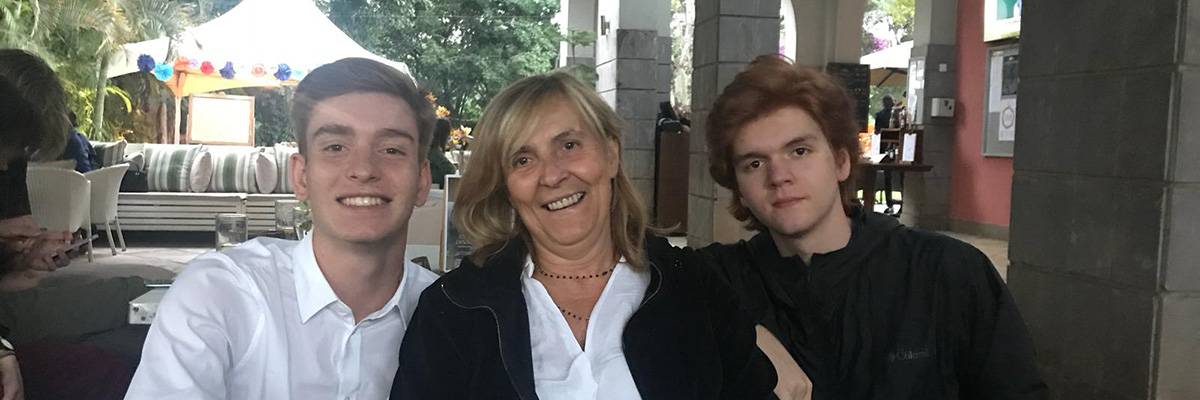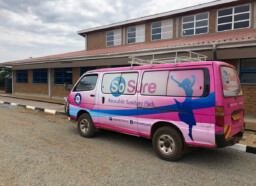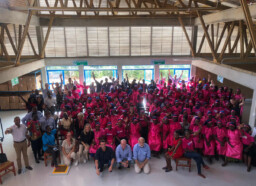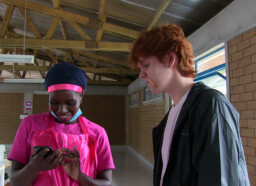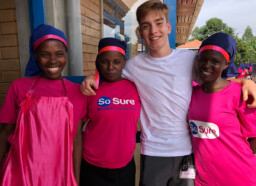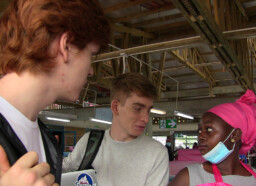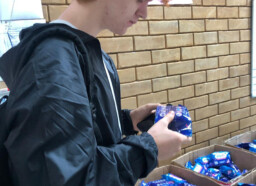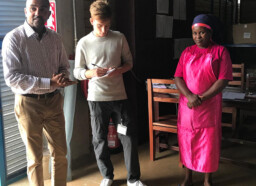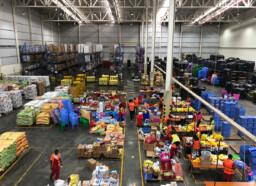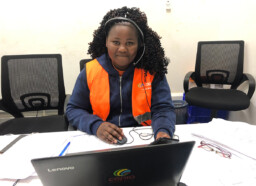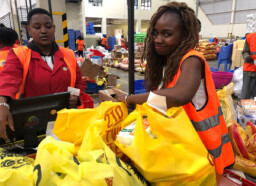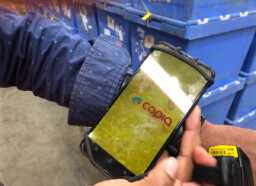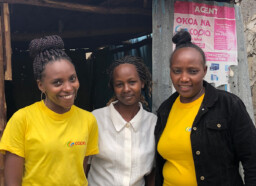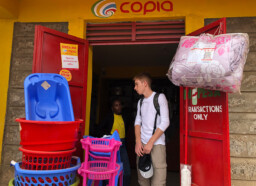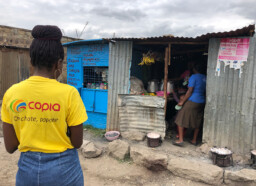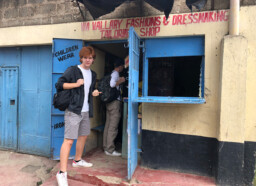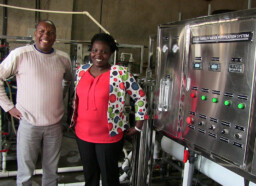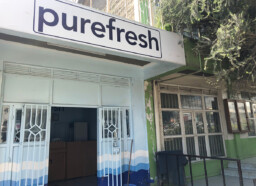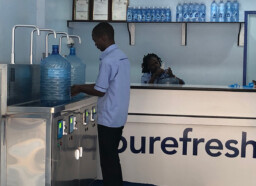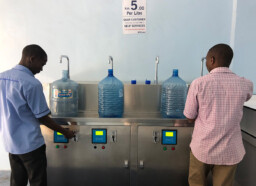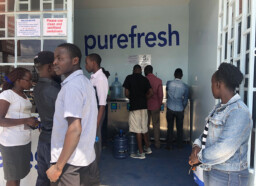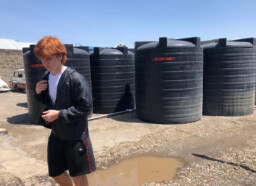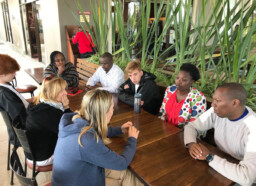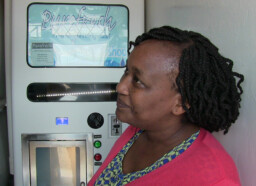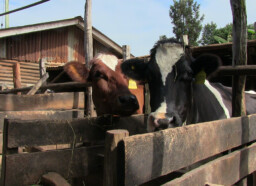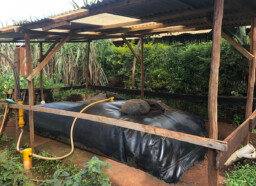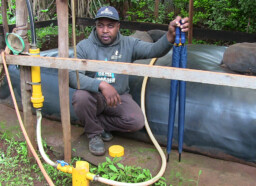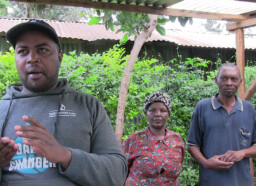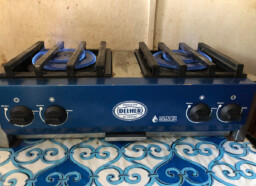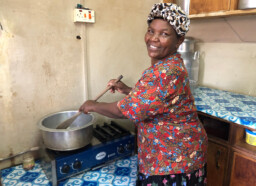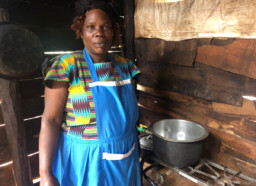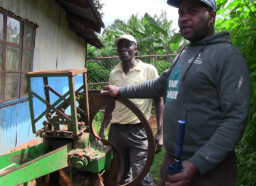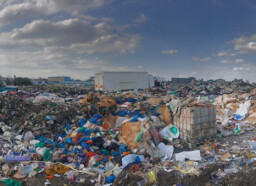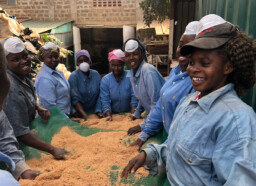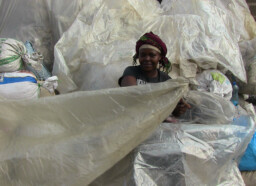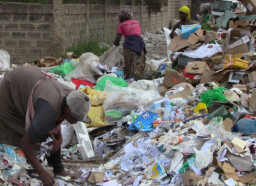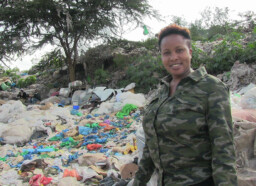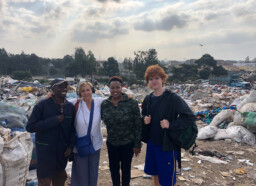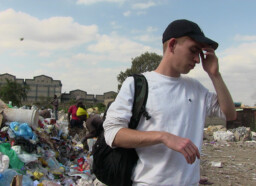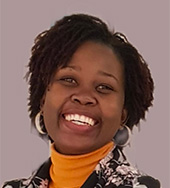Our enterprises through the eyes of 2 young volunteers (Tommaso Mazzini, 20 years old and Edoardo Abbondio, 16 years old)
The journey coordinated by Patrizia Canova, OPES-LCEF head of institutional communication was aimed at assessing the progress of the companies in terms of their impact, by collecting data,and also qualitative informations through interviews with their employees, clients, customers, suppliers. Also the idea was to shape a new narrative given the “special lenses” of Tommaso and Edoardo, youth belonging to a generation that cares about environment and business with purpose.
Here a short abstract of their long summary.
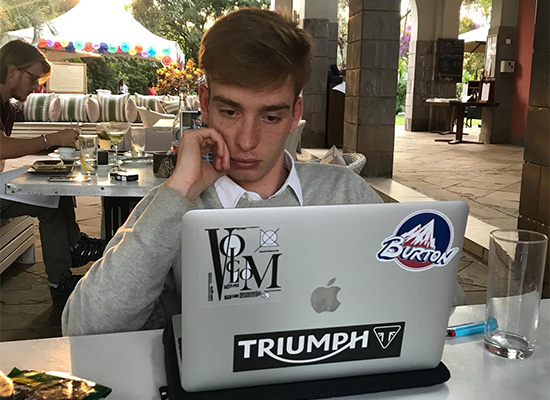
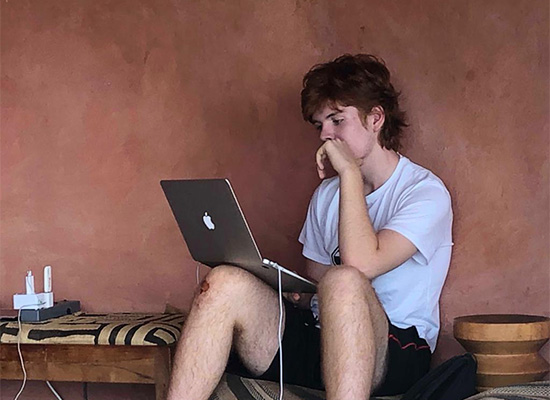
1 STOP AFRIPADS in UGANDA, Kitengesa village, Masaka district
Afripads, the first company visit, officially opened the doors to the new constructed 30.000 sq.foot production facility in Kitengesa, rural Uganda on the 27th of June and the OPES-LCEF delegation was there to celebrate the happening, a true milestone in Afripads life.
With the team now centralized under one massive roof , capacity production will double. When the factory will reach full capacity Afripads will be able to reach over 4 million women and girls per year.
“During my stay in the factory I was able to interview many workers, Annette Namala, Angel Nasamba, Kiza Phionah, Sarah Sullivan among them; from those conversations I was able to see how helpful and impressive this company is, thinking how it developed from a company of a few workers that used to work in a tiny room to a big factory with hundreds of workers, distributing women sanitary pads all throughout Africa. I really liked how all of the workers I talked to, told me how they love working there and that they feel really grateful for being able to work at Afripads because not only it helps them provide for their families, it also has an amazing working atmosphere, that doesn’t stress the workers and instead prompts them to work more.” by Edoardo Abbondio
2 STOP, COPIA GLOBAL in Nairobi, Kenya
From the rural village of Kitengesa with its scattered houses to the hech hub of Nairobi where first the mobile payment innovation has been launched to disrupt the financial transactions models of the entire continent.
“COPIA is a business just like Amazon, serving low income people. It employs thousands of agents and it opens new shops every week. The agents are usually shopping owners of retail shops which live in rural villages or in the outskirts of cities and which agree to cooperate with the company. Copia uses an organized and sophisticated method to follow and deliver each packet to each client using an efficient working chain, a precise categorization system, and a modern technological program to follow the package. The union of all those things makes Copia a sophisticated organization which is spread all throughout Kenya even in the smaller villages. I think this project is really helpful because it gives every person in Kenya, the possibility to buy products which are unreachable where they are, without spending a giant amount of money for transportation”. By Edoardo Abbondio
3 STOP PUREFRESH in Naivasha and Nairobi, Kenya
Naivasha stands in the Rift Valley and it is there where Anthony Kamotho and his wife Njambi Kibe established first Pure Fresh.
“They started the company from scratch and at beginning they were able to purify just 40 liters of water per hour, a tiny number compared to their current amount of 6000 liters. An achievement made possible thanks to the founder’s intuition and the solid ground the business was made from. Everyone and truly everyone, also the most vulnerable and poor people can afford to buy the purified water the 30 agents distribute and sell around Naivasha, Nakuru and now in some periurban areas of Nairobi. What I admire most is the fact that Antony customizes his own technology, its purification plant, its vending machines and make them cost effective for the most noble goal: helping his family, his neighborhood, his country.” by Tommaso Mazzini
4 STOP SISTEMA BIO in KENYA, rural areas around Nairobi
A clear and strong business model with the right execution make Sistema Bio journey from Mexico to Kenya a promising success:
“After experiencing it with my own eyes and listening to the buyers’ reviews, I came to the conclusion that this product is amazing and brings many advantages to the customers. Customers John e Mary Njoroge, e James Mbogo , told me that first of all it’s cheap because it costs only 6 months of gas payment to install it and one-tenth of every month gas payment to conduct containment, also the payment is spread up to 6 months making it affordable. This is already a big advantage because customers are usually farmers who don’t have high income. Also, I think Sistema Bio is going to be even more helpful in the future because for now it can only be used to fuel the kitchen, but in the future will be used as lighting source. Animal manure is used to produce fuel ; this is way it helps the environment by not consuming non renewable resources like gas, so it’s also sustainable for the planet, which makes it almost a perfect product.” By Edoardo Abbondio
5 STOP, ECOPOST in Nairobi, Kenya
Ed infine nell’inferno della discarica industriale di Runga Runga per intervistare le persone che lavorano nella filiera di Ecopost nell’approvigionamento della plastica necessaria per la produzione dei pali/prodotti industriali e incontrare Lorna Rutto, cofondatrice:
“I met Lorna Rutto in the heart of the Hell…
We arrived at the outskirt of the Runga Runga industrial dump in a early afternoon. Lorna was already there waiting for us,and while she was getting closer she had that smile, shining in her face….one of that catalyzing smile for which oneday you could decide to leave everything behind you and follow the smile holder…
We were following Lorna and the stench was getting stronger and unbearable…tons and tons of waste all around us, full bags of plastic on the horizons …not an inch of ground was visible, just waste,
we were just sorrounded by plastic, walls of plastic, smelling, putrified plastic… leaving us with no escape, …like Dante approaching a new “girone” in the Hell we found ourselves standing at the top of a mountain made by plastic …overwhelming.
Lorna who never showed any discomfort and always smiling told us that despite the many difficulties and also the attempts to hidden the unimaginable truth experienced by people, families, kids living and working in awful places such as Runga Runga, she would have never left those people alone and her goal would have always be to change their life and her company was made for this reason …” by Tommaso Mazzini



